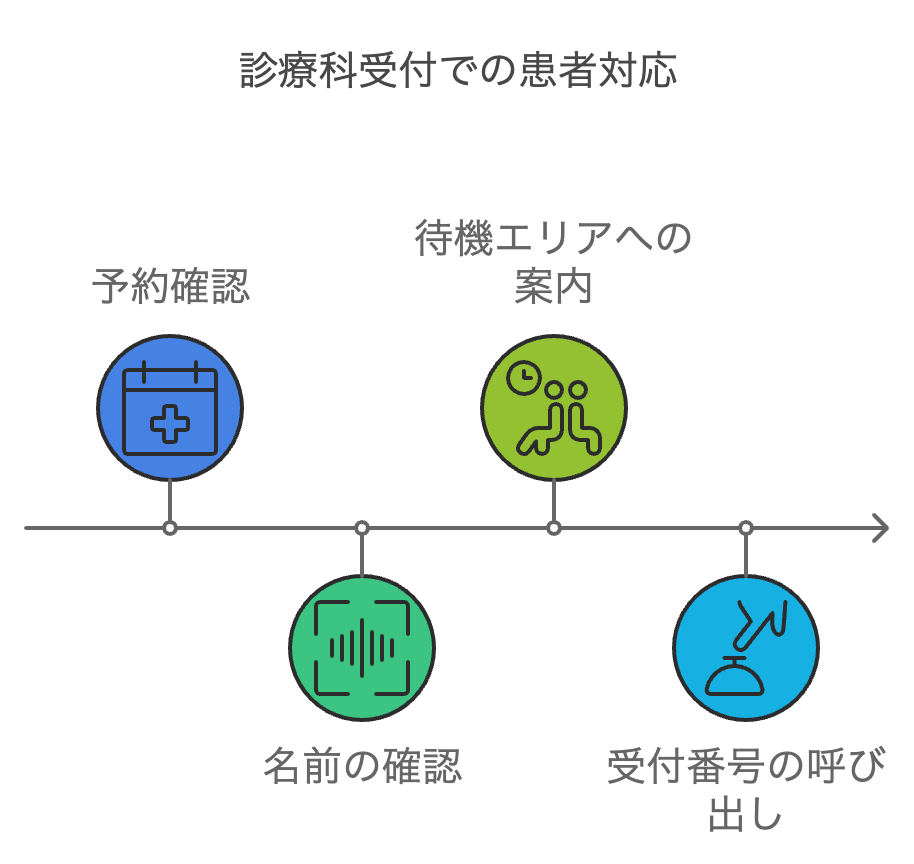循環器内科における心筋症の診察に関する英語フレーズと会話例
循環器内科では、**心筋症(Cardiomyopathy)**の診察と治療が行われます。心筋症は、心筋が正常に機能しなくなることで、心臓が血液を効果的に送り出す能力が低下する病気です。
この記事では、心筋症の診察における具体的な会話例と重要なフレーズを学べる内容にします。
患者の設定
- 名前: Shunichi Yamamoto (55歳、男性)
- 職業: 会社員
- 主な症状: 最近、運動や階段の上り下りで息切れを感じ、胸の圧迫感がある。夜間に足がむくむことが増えている。
- 既往歴: 高血圧、喫煙歴あり
- 生活習慣: デスクワーク中心の生活で運動不足。
診察の流れと会話例
1. 初診での問診と症状の確認
Doctor: “Good afternoon, Mr. Yamamoto. I understand you’ve been experiencing some shortness of breath recently. Can you tell me more about when it happens and what other symptoms you’ve noticed?”
日本語訳: 「こんにちは、山本さん。最近、息切れがあるとお聞きしましたが、いつ頃から起こり、他にどんな症状がありますか?」
Patient: “Yes, I’ve noticed it gets worse when I’m climbing stairs or walking uphill. I also feel some pressure in my chest, and my legs are swollen, especially at night.”
日本語訳: 「はい、階段を上ったり、坂道を歩いたりすると息切れがひどくなります。胸に圧迫感を感じることもあり、特に夜、足のむくみが気になります。」
Doctor: “I see. So you’re experiencing shortness of breath, chest pressure, and leg swelling. Do you feel tired or fatigued more than usual?”
日本語訳: 「なるほど。息切れや胸の圧迫感、足のむくみがあるということですね。いつもより疲れやすいと感じていますか?」
Patient: “Yes, I get tired more easily than I used to, even with small activities.”
日本語訳: 「はい、以前よりも小さな活動で疲れやすいと感じます。」
2. 病歴とリスクファクターの確認
Doctor: “Do you have any history of heart disease in your family? And do you have any other health conditions, like high blood pressure or diabetes?”
日本語訳: 「ご家族に心臓病の既往歴はありますか?また、高血圧や糖尿病などの他の健康状態はありますか?」
Patient: “Yes, my father had heart failure in his 60s, and I’ve been treated for high blood pressure for several years.”
日本語訳: 「はい、父が60代で心不全を患いました。私は数年前から高血圧の治療を受けています。」
Doctor: “Do you smoke or drink alcohol? And do you have any history of lung problems?”
日本語訳: 「喫煙や飲酒の習慣はありますか?また、肺の問題の既往歴はありますか?」
Patient: “I used to smoke, but I quit about five years ago. I don’t have any lung problems that I know of.”
日本語訳: 「以前は喫煙していましたが、5年前にやめました。肺の問題はありません。」
3. 検査の必要性と診断の説明
Doctor: “Based on your symptoms and history, it’s important to check for cardiomyopathy, which is a condition where the heart muscle becomes weakened. We’ll start with an electrocardiogram (ECG) to measure the electrical activity of your heart, and we may also do an echocardiogram to take images of your heart to see how well it’s pumping. In some cases, we might recommend a cardiac MRI for a more detailed look.”
日本語訳: 「症状と病歴から判断して、心筋症の可能性を確認することが重要です。これは、心筋が弱くなる状態です。まず、心臓の電気的活動を測定するために心電図(ECG)を行い、心臓がどれだけうまく血液を送り出しているかを見るために心エコー検査を行います。必要に応じて、さらに詳細に見るために心臓MRIを行うこともあります。」
Patient: “Is cardiomyopathy serious?”
日本語訳: 「心筋症は深刻ですか?」
Doctor: “It can be, depending on the type and severity. Some cases of cardiomyopathy can lead to heart failure if left untreated. However, with the right treatment, many patients are able to manage their condition and live a normal life.”
日本語訳: 「心筋症の種類や重症度によって異なりますが、治療を受けずに放置すると心不全に進行することがあります。しかし、適切な治療を受ければ、ほとんどの患者さんは状態を管理し、通常の生活を送ることができます。」
4. 心筋症の治療と管理
Doctor: “If the tests confirm cardiomyopathy, the treatment will depend on the type you have. We may prescribe medications to help your heart pump more effectively, such as ACE inhibitors, beta blockers, or diuretics to reduce the fluid buildup in your legs. In some cases, we might consider implanting a defibrillator to regulate your heart rhythm or even discuss the possibility of heart surgery.”
日本語訳: 「検査で心筋症が確認された場合、治療法はタイプによって異なります。心臓がより効果的に血液を送り出すために、ACE阻害薬やベータブロッカー、利尿剤などの薬物療法を処方することがあります。場合によっては、心拍を調整するために除細動器の埋め込みを検討したり、心臓手術の可能性についても話し合うかもしれません。」
Patient: “Will I need surgery?”
日本語訳: 「手術が必要ですか?」
Doctor: “Surgery is usually only considered if medications don’t help or if your heart function continues to decline. We’ll try to manage your condition with medications and lifestyle changes first, and only consider surgery if it’s necessary.”
日本語訳: 「手術は、薬物療法が効果がない場合や、心機能が低下し続ける場合にのみ検討されます。まずは、薬物療法や生活習慣の改善で管理し、必要な場合にのみ手術を考えます。」
5. 生活習慣と心筋症の予防法
Doctor: “In addition to medication, making some lifestyle changes can help improve your symptoms and prevent your condition from getting worse. Reducing salt in your diet, maintaining a healthy weight, and getting regular exercise are all important. Managing your blood pressure and avoiding smoking and excessive alcohol can also help.”
日本語訳: 「薬物療法に加えて、生活習慣の改善も症状を改善し、病気の進行を防ぐのに役立ちます。塩分を減らし、健康的な体重を維持し、定期的な運動をすることが重要です。また、血圧管理、禁煙、過度の飲酒を避けることも助けになります。」
Patient: “I’ve already cut down on salt, but I’m not sure how much exercise I should be doing.”
日本語訳: 「塩分はすでに控えていますが、どれくらいの運動をすればいいのかわかりません。」
Doctor: “Start with gentle aerobic exercises, like walking or cycling, for about 20 to 30 minutes a day. We’ll create an exercise plan tailored to your condition, and we can adjust it as you improve.”
日本語訳: 「ウォーキングやサイクリングなどの軽い有酸素運動を1日20〜30分から始めましょう。お客様の状態に合わせた運動プランを作成し、改善に応じて調整していきます。」
学習ポイント
- 症状の確認: 心筋症に関連する症状を確認するためのフレーズを学びましょう。例: “Do you feel shortness of breath when climbing stairs or during physical activity?“(階段を上ったり運動中に息切れを感じますか?)
- リスクファクターの確認: 心筋症のリスクを確認するためのフレーズを学びます。例: “Do you have a family history of heart disease or heart failure?“(ご家族に心臓病や心不全の既往歴はありますか?)
- 検査の説明: 心筋症を診断するための検査を説明するフレーズを学びましょう。例: “We’ll do an echocardiogram to see how well your heart is pumping.“(心臓がどれだけうまく血液を送り出しているかを見るために心エコー検査を行います。)
- 生活習慣の改善: 心筋症の進行を防ぐための生活習慣の改善に関するアドバイスも重要です。例: “Reducing salt in your diet and maintaining a healthy weight can help improve your heart function.“(食事の塩分を減らし、健康的な体重を維持することで心機能を改善できます。)
関連キーワード: 心筋症, 心不全, 循環器内科, 心エコー検査, 心電図, 生活習慣改善, 英語会話例, 外国人対応



